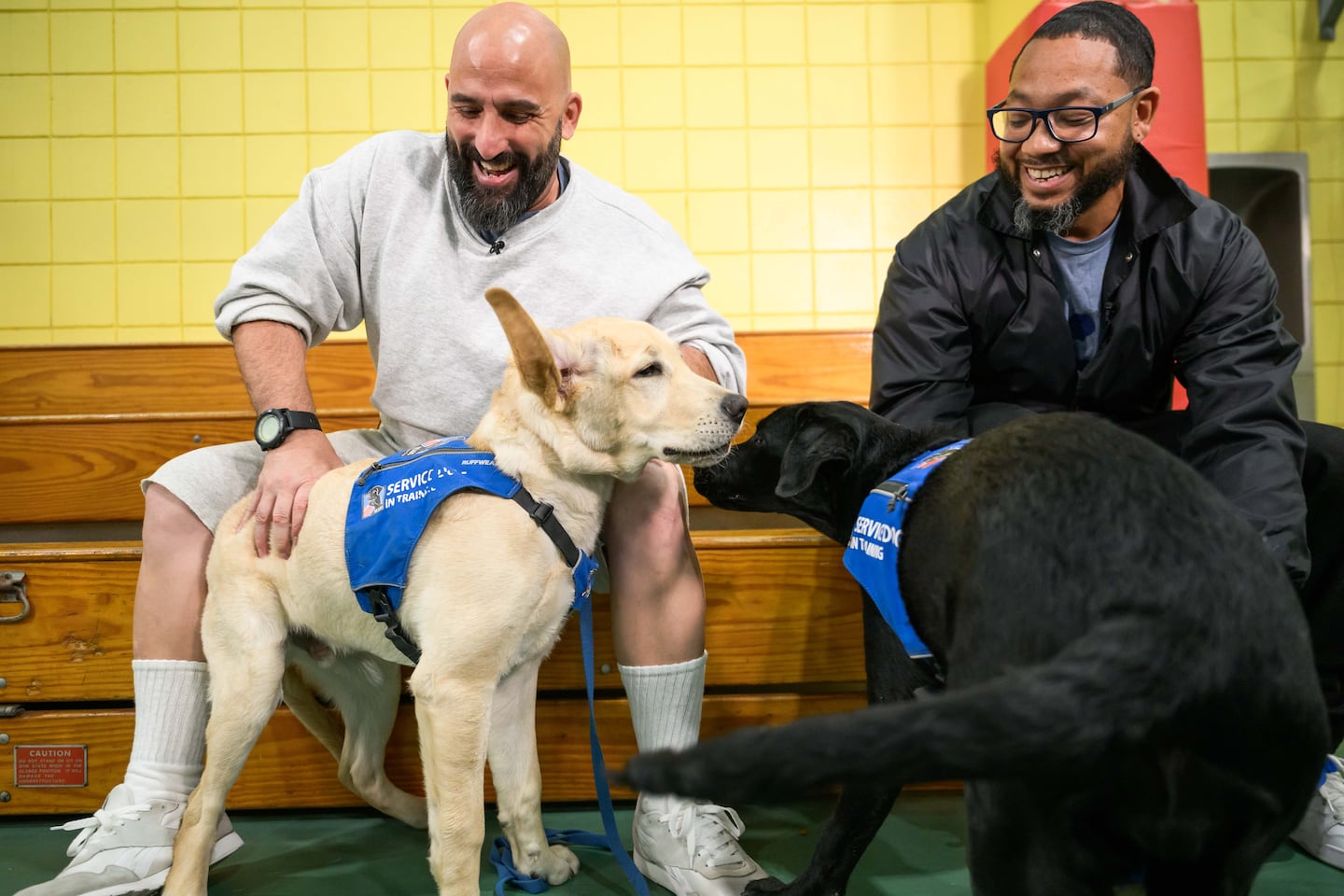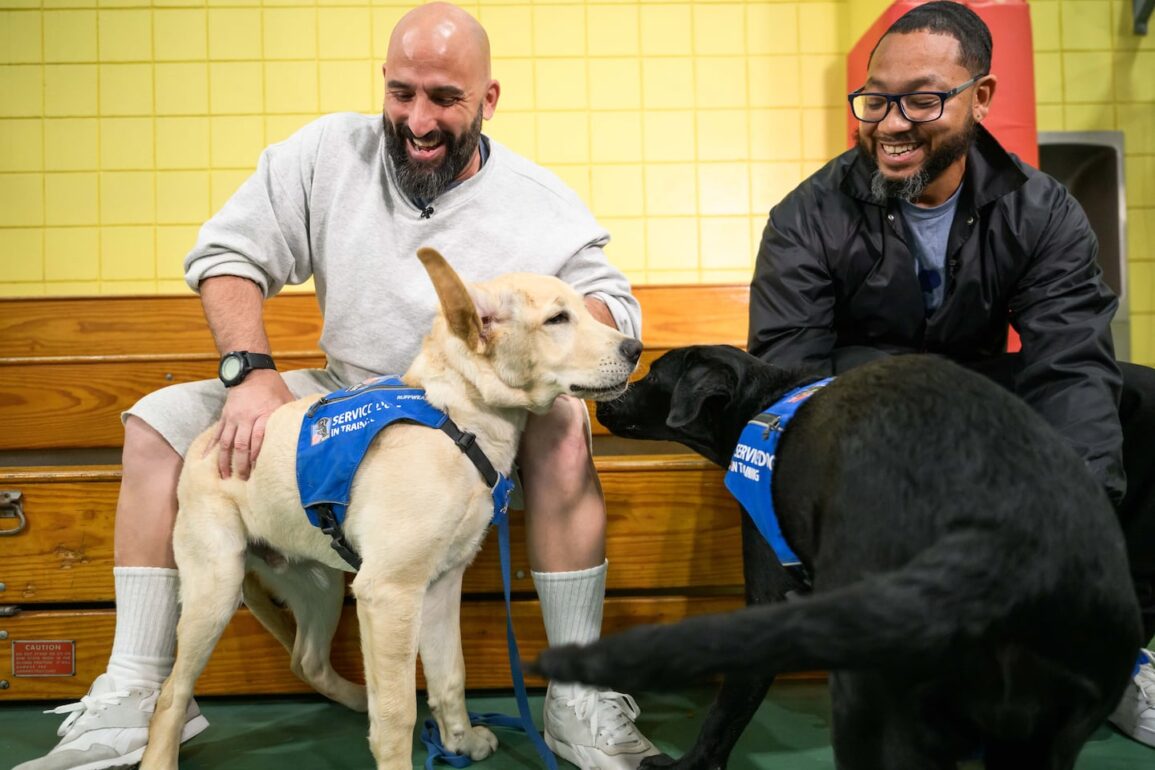CONCORD — Walter Estrada looked down at the black Labrador Retriever puppy standing by his side at Northeastern Correctional Facility’s gymnasium on a recent morning.
“Speak,” said Estrada, an incarcerated person at the facility. The dog let out a quick bark and waited for a treat.
“She’s feisty, that’s why she has the name, Pepper,” he said. “She’ll do great, she’s very alert.”
Estrada was training his first service dog as part of the NEADS Prison PUP Program at Northeastern Correctional. Puppies live with their incarcerated trainer during training. Staff from the Princeton-founded service dog nonprofit visit facilities weekly to teach incarcerated people how to train the dogs. NEADS says they can provide consistent, high-level service dog training because of how much time incarcerated individuals can devote to the dogs.

The program is now in six prisons in Massachusetts and Rhode Island.
When the dogs are fully trained, they are matched with people who need them like those who require hearing assistance and veterans with post-traumatic stress disorder. Some dogs go on to assist first responders. Since it was founded in 1976, more than 2,000 NEADS dogs have been matched with clients. About 300 are active right now.
The program, which mostly breeds Labrador Retrievers, assesses their strengths starting at eight weeks to determine what they should specialize in. If they are sensitive to sounds they may be fit for the hearing track. If they are calm and handler-focused, they may be fit for adults or children with physical disabilities who need assistance with pushing buttons, turning off and on lights, and asking for help.
They are matched with an incarcerated trainer who trains the dog for 12-18 months. NEADS volunteers who are not incarcerated, called Weekend Puppy Raisers, also help puppies socialize outside the prison.
For many future clients, getting a service dog can be the difference between dependence and independence, says Cathy Zemaitis, NEADS’s Chief Development and Program Officer.
“If I drop my keys, I bend down and pick them up,” she said. “For some, it’s not so easy. The dogs change how they go out and about in the world.”

Dogs live with the incarcerated trainer they were matched with and go with them about their day during training. From going to the gym to working in the property office to going out for late-night fresh air, Estrada takes Pepper everywhere.
Zemaitis acknowledged that the scale of work NEADS does serving the disabled community may not be possible without programs like the PUP Program, where incarcerated people are volunteers.
“One hundred percent they help us keep costs down, but mostly, they just do a great job,” she said.
Estrada worked as a car technician and is now serving a six-year sentence for drug trafficking. He has a wife and three boys at home in Worcester. Pepper helps him feel less alone.
“Being in a prison setting, you can do all the program offerings which are limited, you’re bored,” he said.

Derick Kaplinger, 52, another inmate in the program, was surprised to see how quickly the dogs learned. He was training a white Labrador Retriever named Sumner who he said picks up two to three new things a week.
“You want people to know you did a good job,” he said. “And being able to do something for someone in need is great.”
Izzy Bryars can be reached at izzy.bryars@globe.com. Follow her @izzybryars.
This post was originally published on this site be sure to check out more of their content.













































